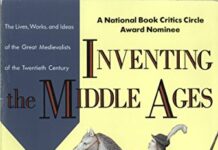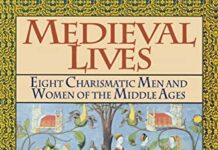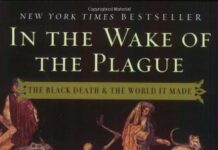
Ebook Info
- Published: 2009
- Number of pages: 192 pages
- Format: PDF
- File Size: 1.82 MB
- Authors: Norman F. Cantor
Description
“Alexander’s behavior was conditioned along certain lines — heroism, courage, strength, superstition, bisexuality, intoxication, cruelty. He bestrode Europe and Asia like a supernatural figure.”In this succinct portrait of Alexander the Great, distinguished scholar and historian Norman Cantor illuminates the personal life and military conquests of this most legendary of men. Cantor draws from the major writings of Alexander’s contemporaries combined with the most recent psychological and cultural studies to show Alexander as he was — a great figure in the ancient world whose puzzling personality greatly fueled his military accomplishments.He describes Alexander’s ambiguous relationship with his father, Philip II of Macedon; his oedipal involvement with his mother, the Albanian princess Olympias; and his bisexuality. He traces Alexander’s attempts to bridge the East and West, the Greek and Persian worlds, using Achilles, hero of the Trojan War, as his model. Finally, Cantor explores Alexander’s view of himself in relation to the pagan gods of Greece and Egypt.More than a biography, Norman Cantor’s Alexander the Great is a psychological rendering of a man of his time.
User’s Reviews
Reviews from Amazon users which were colected at the time this book was published on the website:
⭐This book is a gem, in large because the analysis of the “greatness” of Alexander in the fifth and closing chapter is designed to generate thought, debate and ideas for every student of history. “The impact of Alexander on the Mediterranean world has always been a subject for debate,” Cantor notes, and proceeds to add provocatively to that debate. Alexander, like Achilles, Caesar, King Arthur, Abraham Lincoln, Winston Churchill, embodies the spirit of the times and the people of their eras. Alexander and Achilles were heroic; Caesar and Arthur were innovators; Lincoln and Churchill gave words to enhance the decency of great nations. Lincoln, to cite an example, did not invent democracy in America. However, when he defined democracy as government “of the people, by the people, for the people”, he greatly sharpened and enhanced already existing attitudes. Alexander did the same in his time; he did not invent war, but he set an ideal seldom matched and thus established the warrior ideal for much of the Mediterannean. King Arthur does the same with his round table; Churchill gives credit to the British people for stopping Hitler. Now, consider George Bush with his Texas swagger and flight suit while strutting across the deck of an aircraft carrier to announce “Mission Accomplished” as if he were a warrior. Alexander, in contrast to the coddled and well-protected life of Bush, survived numerous serious wounds acquired while leading his troops from the front. Whether it’s Bush or Clinton or Reagan, there’s a vast difference between Alexander and the perspiration and spin of today’s leaders. As Canton aptly shows, it’s why “the Great” title is retired. Intended or not, there are numerous subtle parallels between ancient and modern events in the Near and Middle Easts. Alexander was successful because he responded immediately and brilliantly to local events rather than try to rule from afar; instead of being an ideologue, he worshipped every God he met along the route of his conquests. Because he was handicapped by “faulty intelligence,” when he reached Afghanistan and India he realized it was time to listen to his troops, then “cut and run”. Why? To quote Cantor, “One of the old soldiers, a man named Coenis . . . . gave the speech of his life, ending with these words: ‘Sir, if there is one thing above all others a successful man should know, it is when to stop’. Instead of trying to stay the course, Cantor says “Alexander sulked for two days but then tried to find a way to make this defeat appear to be a victory.” Cantor offers an intriguing psychological assessment of Alexander; not only was he “the supreme exemplar of that old pagan world” but he also knew how to sulk and then accept the will of his troops. Perhaps that is why there are no modern Alexanders; today we tend to look at his heroism, courage, strength and vision but overlook his ability to sulk. It’s a masterful biography, not merely because of what it says about Alexander but also for what it teaches us about ourselves.
⭐Once again Mr. Cantor has delivered in one of his works and again some haters on these reviews do not grant him the respect he deserves in regards to his works. This is a brief survey of Alexander, it was not meant to be an extensive biography. It is a shame that Mr. Cantor is no longer with us to further expand our horizons on subjects that are difficult to comprehend and learn when sitting in a college course.
⭐It’s basically brand new! The cover has little smudges on it but the pages are nice and crisp. I am very satisfied.
⭐The man who wrote this work was an eminently able scholar. This short work gives a concise interpretation of the evidence we have on Alexander with able insights that will enhance the general readers insight and probably, for whatever reason, tick off the more advanced reader who is likely looking for more of the same old same old. You know, self confirmation. Cantor did know how to make history speak to the present. No dust here. As for the production quality and the reader, excellent.
⭐It needs to be said that while Norman Cantor was a medievalist of genius, he was not by training an authority on the classical world. This his final book, in which he steps outside of his acknowledged area of expertise, is unfortunately worthy of neither its author nor its subject. Cantor’s judgments of certain of Alexander’s other biographers are especially unsatisfactory. In Cantor’s view, Arrian’s great work amounts to little more than a pastiche of previous authors; among modern writers, Robin Lane Fox’s monumental biography is dismissed as neo-Victorian hero-worship. Anyone with an interest in the Hellenistic world in general and Alexander in particular should begin their studies elsewhere.
⭐I got this book for one of my classes and did not read it. My classmates say that it’s disorganized, hard to follow, and winding. They did say it was an ok read if you know nothing about the topic, but if you do there’s a lot of extra information you don’t want to sit through.
⭐The book was just as described. Great find. The bookstore charges $15 for this book. Shipped promptly and worth the money.
⭐This is the worst book ever written on Alexander. There are historical inaccuracies on nearly every page. Heresay and universally discounted legend are presented uncritically alongside historically accepted fact.
Keywords
Free Download Alexander the Great: Journey to the End of the Earth in PDF format
Alexander the Great: Journey to the End of the Earth PDF Free Download
Download Alexander the Great: Journey to the End of the Earth 2009 PDF Free
Alexander the Great: Journey to the End of the Earth 2009 PDF Free Download
Download Alexander the Great: Journey to the End of the Earth PDF
Free Download Ebook Alexander the Great: Journey to the End of the Earth



